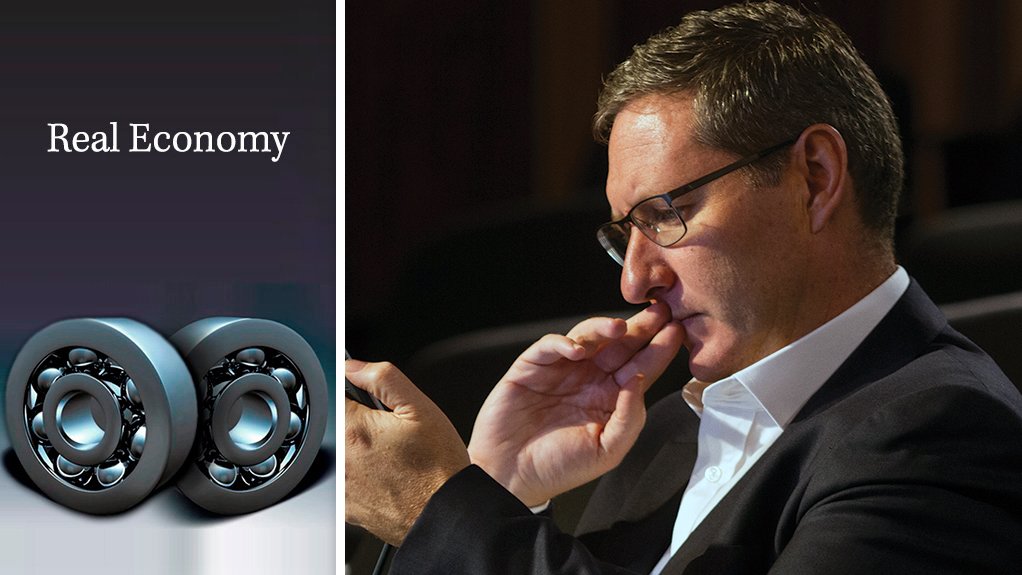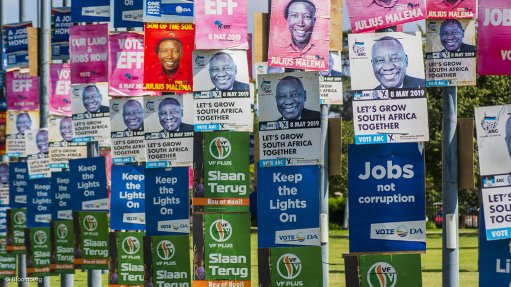Growth problem
The African Development Bank’s former chief economist, Professor Mthuli Ncube, is a close observer of the South African economic condition and he recently raised some serious questions about South Africa’s current monetary policy stance. Speaking at the Wits Business School in Johannesburg, he warned that recent interest rate hikes could well prove ineffectual should the prevailing growth concerns result in lower investment levels and/or the country being downgraded to junk.
The South African Reserve Bank (SARB) raised interest rates by 25 basis points to 7% in March, owing primarily to concerns over rising inflation, itself spurred by a weaker rand and higher food prices. Consumer price inflation surged to 7% in February, its highest level since June 2009. However, the rand has also recovered materially since the March interest-rate hike.
Currently professor of public policy at the University of Oxford’s Blavatnik School of Government, Ncube, nevertheless, expressed unease with the SARB’s further tightening stance. He argued that, in setting rates, the authorities needed to take account not only of the inflation and output gaps, but also of financial stresses arising from the international environment.
Drawing on his latest book, titled Global Spillovers into South Africa, Ncube outlines which global spillovers have the biggest influence on domestic growth. For instance, it shows that Italy had been a consistent drag on South African growth before and after the 2009 recession, while the UK had been the main contributor to the actual recession. In addition, the US, China and India had a far greater influence on South Africa’s economic performance than did either Russia or Brazil.
That said, Ncube also stressed that domestic shocks were as important as global ones and that local factors were currently having a greater influence on the outlook for the country’s risk premium than the global spillovers.
South Africa’s response to its current predicament included interest rate hikes, which Ncube questioned, particularly in light of “some of the stresses that still persist”, such as the slowdown in China, the fall in commodity prices and the threat of a ‘Brexit’ from the European Union.
“The problem is that, when growth slows down quite sharply, it cannot be the type of environment that attracts foreign direct investment or capital. On the contrary, weak growth can lead to an even weaker rand.”
In such a context, interest rate hikes would be unable to stop the rand from sliding, particularly when weak growth was coupled to other political risks, which had increased in recent months.
“My message for South Africa is to let the rand find its level. Let’s do whatever we can to keep growth going, to make sure there is confidence domestically and for foreign investors.”
Ncube stressed that South Africa’s policy response at the early stages of the global financial crisis – of lower interest rates and a slightly wider Budget deficit – had been convincing. “I’m less convinced now about the domestic policy response to the shocks, because the shocks are still there globally. But now, with domestic shocks, monetary policy is having to accommodate political shocks and I’m not sure it will be successful.”
The country’s weak growth prospects and its political climate will be central to the upcoming assessments of the ratings agencies. However, without reining in inflation, future growth prospects can also be hampered. For the SARB, it’s arguably a case of being ‘damned if you do, damned if you don’t’.
Comments
Press Office
Announcements
What's On
Subscribe to improve your user experience...
Option 1 (equivalent of R125 a month):
Receive a weekly copy of Creamer Media's Engineering News & Mining Weekly magazine
(print copy for those in South Africa and e-magazine for those outside of South Africa)
Receive daily email newsletters
Access to full search results
Access archive of magazine back copies
Access to Projects in Progress
Access to ONE Research Report of your choice in PDF format
Option 2 (equivalent of R375 a month):
All benefits from Option 1
PLUS
Access to Creamer Media's Research Channel Africa for ALL Research Reports, in PDF format, on various industrial and mining sectors
including Electricity; Water; Energy Transition; Hydrogen; Roads, Rail and Ports; Coal; Gold; Platinum; Battery Metals; etc.
Already a subscriber?
Forgotten your password?
Receive weekly copy of Creamer Media's Engineering News & Mining Weekly magazine (print copy for those in South Africa and e-magazine for those outside of South Africa)
➕
Recieve daily email newsletters
➕
Access to full search results
➕
Access archive of magazine back copies
➕
Access to Projects in Progress
➕
Access to ONE Research Report of your choice in PDF format
RESEARCH CHANNEL AFRICA
R4500 (equivalent of R375 a month)
SUBSCRIBEAll benefits from Option 1
➕
Access to Creamer Media's Research Channel Africa for ALL Research Reports on various industrial and mining sectors, in PDF format, including on:
Electricity
➕
Water
➕
Energy Transition
➕
Hydrogen
➕
Roads, Rail and Ports
➕
Coal
➕
Gold
➕
Platinum
➕
Battery Metals
➕
etc.
Receive all benefits from Option 1 or Option 2 delivered to numerous people at your company
➕
Multiple User names and Passwords for simultaneous log-ins
➕
Intranet integration access to all in your organisation




















